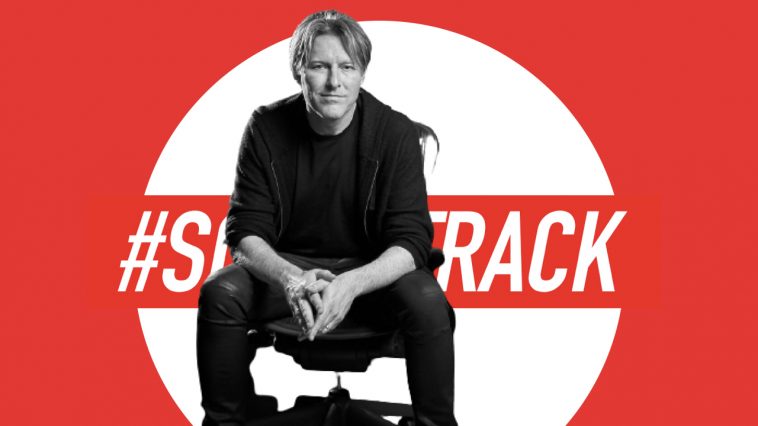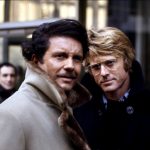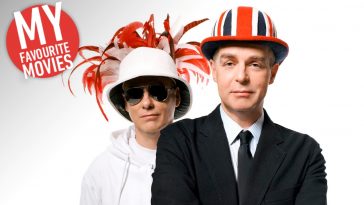Tyler Bates is the current go-to composer in Hollywood for big, propulsive action beats. He’s scored a number of popular high-profile big screen adventures, most notably the two Guardians of the Galaxy films and the John Wick series. But Bates is also a prolific and much in-demand music collaborator, having worked significantly with Marilyn Manson, alongside producing a number of original songs within the films he’s scored. Having also been able to ply his trade across a number of video game titles, Bates has even squeezed in work on a variety of TV shows, including crime series Stumptown. We caught up with the busy composer recently to chat about his career and how he’s evolved in his profession over the years.
You started out as a musician. What set you on the path to composer?
When I first moved back to Los Angeles from Chicago in 1993 to pursue my music career, I started meeting directors of indie films at parties and barbecues. Through conversation they asked if I would score their films. I had no prior experience in composing, but I learned working with those directors, their editors, producers and re-recording mixers. It was an opportunity to experience another dimension of music while I was also working on writing and producing with different recording artists.
I moved to LA to make records, but I was definitely diverted once I got into film. I think in the first three years I returned to LA, I score 15 little movies while working on a band project that was signed to Atlantic Records. Once that imploded, I focused my full attention on film, TV and games.
You’ve collaborated numerous times with a number of directors. You obvious have a rapport with those filmmakers, but how does working with someone like James Gunn evolve through the years, particularly when he gets on-board with a company like Marvel Studios?
I met James through the remake of Dawn of the Dead, which he wrote. He asked me if I wanted to do Slither and we became great friends and colleagues via that experience. I also composed a number of comedy skits he made and then I worked on Super.
I was recording in London on God of War: Ascension when he called to tell me he had got the Guardians gig. Frankly, I wasn’t too well versed in comics, so I didn’t know what Guardians of the Galaxy was (laughs). We got together when I returned home and I saw how incredible the project could be and we started working on ideas. It was great to be able to create the syntax of the language of what the music of Guardians was going to be before James began filming what would be a franchise.
Both Guardians films and Atomic Blonde have an incredible selection of songs. Given your background prior to composing, did the directors get you involved in helping select some of those tracks?
Early on James would include me in those conversations, but the music in Guardians is all his selections. [Atomic Blonde director] David Leitch and I definitely collaborated on the songs. I even produced a couple of covers for that film. If possible, I love to be involved in that facet. I enjoy working with artists on songs and it’s really exciting to begin an idea and have it take hold quickly. It reminds you of when you first start out as artist/musician. It’s incredibly exciting and everything about the business just melts away when you’re in that mindset. It’s a really special process.
How has your working methods changed over the years?
The same with anything you’re passionate about and apply yourself to – you learn a lot and you make lots of improvements. Due to the experience I’ve had learning about the process of filmmaking and TV production, I understand a great deal more about the purpose of music and how I can be a strength to the creative journey in both mediums. When you’re writing and producing a thousand hours’ worth of music in a year, your production skills always improve and you’re constantly discovering new techniques. It’s really a maturation process of decades of being in the studio every day.
One glance at your IMDb page shows you’re as busy as ever. What do you attribute to a successful career as a film composer? Is it the adaptability you’ve mentioned?
To some extent I think that starts in your formative years – the way you think about music and how open-minded and curious you are about everything what’s out there. I’ve been invested in all styles of music for a long time.
I’m also interested in what new artists are doing and what people are relating to, not necessarily because of how something works, but because I want to understand how people are thinking about and emoting to musical concepts. Working with different artists certainly helps me with that progression.
Are there any contemporary musicians who really excite you?
There’s a lot of great artists out there right now. Even someone like Grimes, who is completely out of my normal listening palette, has some good stuff. There’s a ton of artist who are really fantastic – I love Lana Del Ray. I love the people who I’m working with. Alexis Krauss from Sleigh Bells. I think her body of work is fantastic.
You recently did some work on the small screen with horror anthology series Creepshow and a crime show called Stumptown. Did you consider TV something of a palate cleanser to the big-scale action films you do?
The process is much, much different. I enjoy television even though the turnaround is quick, it’s not as manic as the bigger films are. Creatively with those films it’s almost like building sandcastles because the picture changes so much and those films are tested so many times, it’s a challenge to maintain the integrity of the original ideas you started out with. What I enjoy about television is the process is a little bit more chill and you have the opportunity to circle back around as the show’s airing on TV. You can become a fan and return to the main musical motifs you’ve created and present them in a different way. That’s a fun exploration.
A lot of the big blockbusters are really about the actors and the action, with the exception of John Wick. The music in those films is really a world onto itself. I really enjoy working on that series because the director, Chad Stahelski, is super-talented and it’s rewarding to collaborate with my friend and fellow musician Joel Richard. But television is just fun to do, overall. It’s not necessarily going to satisfy the same artistic endeavour as an emotionally-heavy movie, but the likes of Stumptown and the TV series of The Purge are really enjoyable to work on.
Is there a score of yours which you are particularly proud of? It might be from a film which didn’t get the kind of recognition you felt it may have deserved.
Every project you successfully complete, regardless of whatever compromises there were in the process, there’s a pretty strong feeling of relief. They’re all challenges because every director and producer has so much on the line with every film that they make. You can kind of muck up the job as composer and probably get another job, but there’s much more at stake, job-wise, for a director and producer. A prolific filmmaker might make 10 films in their lifetime, while composers can work on hundreds. I think I’m nearing around 80 now and I’m still going. There’s a great responsibility as a composer which comes with saying yes when you have a job proposal. After a scoring job is finished there’s that relief I mentioned, but there’s also some remorse in clearly learning of all the mistakes you that made and knowing you can’t do anything to correct them (laughs).
Both Dawn of the Dead and a little movie I did called Killer Joe are both very special to me. I really loved doing The Way with Emilio Estevez. That was very much music created as the by-product of an ongoing conversation with Emilio and myself. Watchman will always be one of my favourites and I’m really proud of the John Wick stuff and the original music I created for songs in that franchise.

























Leave a Comment